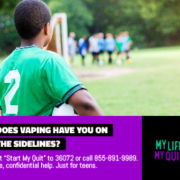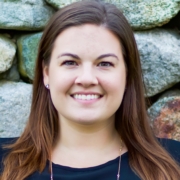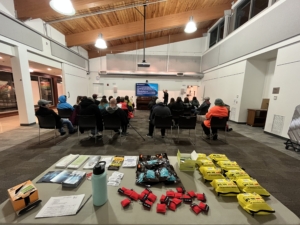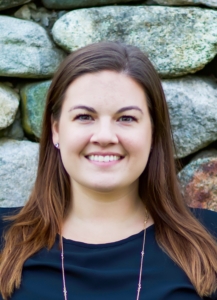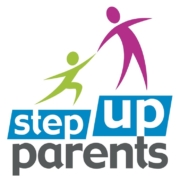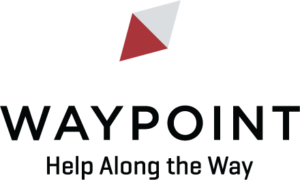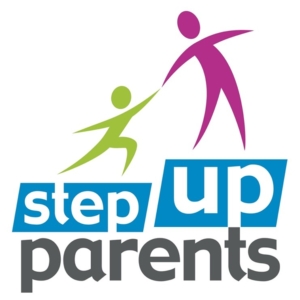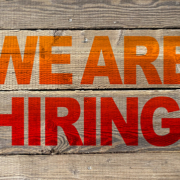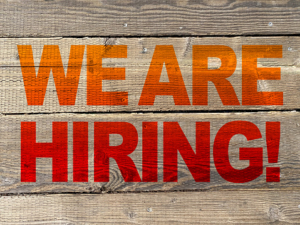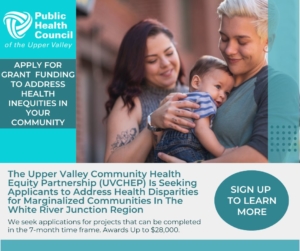Dartmouth Health Youth Vaping Education and Resources Toolkit Released
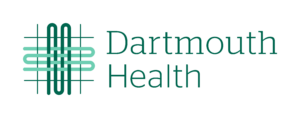 Dartmouth Health and the All Together Coalition recently released a toolkit to help anyone interested in supporting teen vaping prevention, education and cessation with evidence-based resources and information: Dartmouth Health Youth Vaping Education and Resources Toolkit
Dartmouth Health and the All Together Coalition recently released a toolkit to help anyone interested in supporting teen vaping prevention, education and cessation with evidence-based resources and information: Dartmouth Health Youth Vaping Education and Resources Toolkit
Electronic cigarettes or “vapes” are electronic devices that heat liquid (usually containing nicotine, flavoring, and chemicals) that produces an aerosol inhaled into the lungs. Often falsely marketed as a “safer” alternative to cigarettes, vapes and e-cigarettes are unsafe for kids, teens, and young adults. Youth vape use poses several serious health threats, including harms to brain development and increased likelihood to smoke cigarettes in the future.
The growing availability and variety of vaping devices, the tobacco industry’s manipulative marketing targeting youth, and the prevalence of kid-friendly vape flavors make youth vaping a growing concern in our community and nationwide: in December 2018, the United States Surgeon General released an advisory that declared e-cigarette use among youth an epidemic.
Data trends
According to a 2022 Centers for Disease Control and Prevention (CDC) data brief on national trends in e-cigarette sales:
- From February 23, 2020 to July 10, 2022, total e-cigarette unit sales increased by 57.3% (16.2 million units to 25.5 million units). During this period, sales of non-tobacco flavored e-cigarettes (mint, menthol, and other flavors) increased by 75.6% (11.4 million to 20.0 million).
- From February 23, 2020 to July 10, 2022, disposable e-cigarette sales increased by 161.0% (4.9 million units to 12.7 million units); disposable e-cigarette unit share increased from 29.9% to 49.6% of total e-cigarette sales. As of July 10, 2022, 80.3% of disposable sales were of flavors other than tobacco, mint, and menthol.
- Among youth who used e-cigarettes in 2022, 55.3% used disposable e-cigarettes. The most commonly used flavors of disposable e-cigarettes were fruit (69.1%) and candy/desserts/other sweets (38.3%).
Recent research on youth vaping behaviors raise further concern. The CDC and the Food and Drug Administration’s analysis of the 2022 National Youth Tobacco Survey found the following:
- 14.1% (2.14 million) of high school students and 3.3% (380,000) of middle school students currently use e-cigarettes. Overall, 84.9% use flavored e-cigarettes.
- More than a quarter (27.6%) of middle and high school students use an e-cigarette product every day.
- More than 4 in 10 youth e-cigarette users report using e-cigarettes at least 20 of the last 30 days.
- The most commonly used device among current users was disposables (55.3%), followed by prefilled/refillable pods or cartridges (25.2%).
Health Outcomes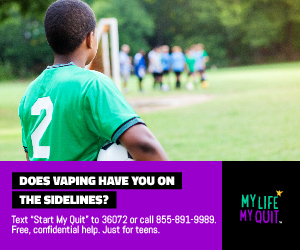
Studies of vape products report that they contain an average of 6.2 flavoring chemicals, with over 20% of commercial vapes containing flavorings with potential inhalation toxicity risk. Additional studies suggest vape usage may negatively influence cardiovascular health, present risk of obstructive lung diseases, adversely affect brain development, and increase risk of chronic bronchitis and asthma in adolescents. E-cigs contain components that present potential risks for lung, stomach, bladder, and esophageal cancer. Additionally, studies shows a consistent link between current vaping and respiratory issues during adolescence. Ongoing research of Electronic cigarette or Vaping product use-Associated Lung Injury (EVALI) shows symptoms include shortness of breath, chest pain, cough, and airway obstruction. The initial case series of 98 EVALI patients in Wisconsin and Illinois had a median age of 21, with 26% of patients younger than 18. Health outcomes associated with youth exposure to nicotine in vapes are described in the Nicotine and the Brain section of the Toolkit.
Appealing to Youth
Marketing of e-cigarettes as a “safer” alternative to cigarettes leads to misperceptions about the health risks they pose. Pediatric researchers describe how vapes have become a “gateway to initiate youths to first tobacco use, due to the misperception of the threat among adolescents and caregivers.” Galderisi et al. further discuss youth-targeted marketing of e-cigarettes (translated from Italian):
“The misperception of vaping among adolescents, as the new trendy harmless commercial distraction, originates from an aggressive marketing strategy relied [sic] on media and social networks, whose primary audience is embodied by the adolescents. Despite claims that e-cigs are for adults only, evidence showed that manufacturers actively targeted young people, youth are initiating at younger and younger ages, [and the majority] transition to smoking combustible cigarettes.”
Additionally, research suggests the availability of enticing vape flavors plays a role in youth vaping uptake, continued use, and perceived addiction. According to a 2019 study of 1,492 current e-cigarette users:
- Flavor was a reason some users initially tried and continued to use e-cigarettes.
- Most e-cigarette users typically used flavors other than tobacco flavor.
- Typical flavors included fruit, mint/menthol, sweets, candy, coffee, and others.
- Satisfaction was greater among users of flavored versus non-flavored e-cigarettes.
- Perceived addiction was also greater among users of flavored e-cigarettes.
This information is particularly troubling considering the thousands of currently available vape flavors, including options such as “bubble gum,” “milk and cereal,” “grape soda,” and flavors that mimic existing sweets brands (e.g. “Watermelon Sour Patch,” “Snickers,” and “Oreo”).
Who Should Use This Toolkit and Why?
This toolkit is intended for anyone interested in evidence-based youth vaping prevention, education, and cessation supports. For ease of navigation, the resources compiled within this toolkit are organized into two main “stakeholder” sections: one for educators and other health professionals (e.g. school administrators, teachers, social workers, LADCs/SAPs, community health professionals), and one for caregivers (e.g. parents, guardians, families) and students.
Editors Note: Article comes from the introduction to the Toolkit and all data sources are available by downloading the Toolkit.
